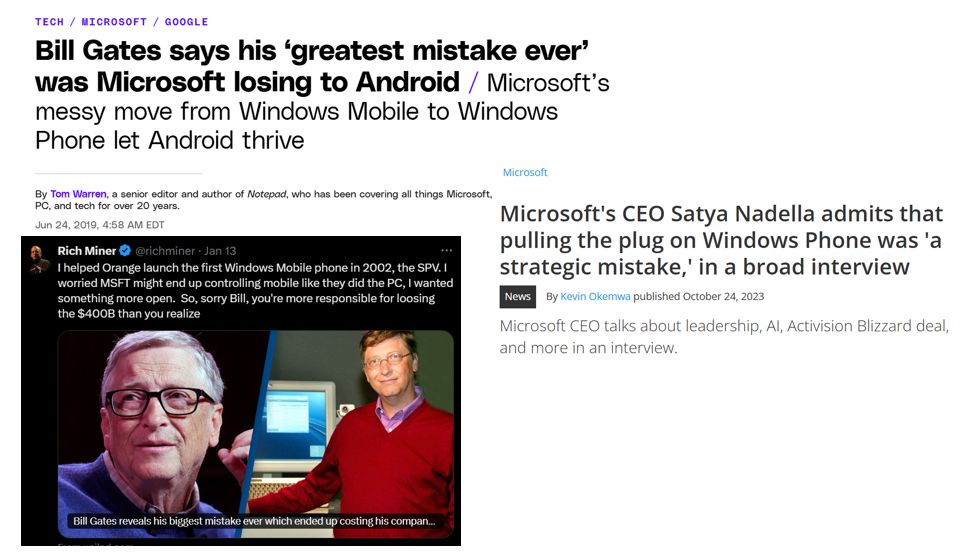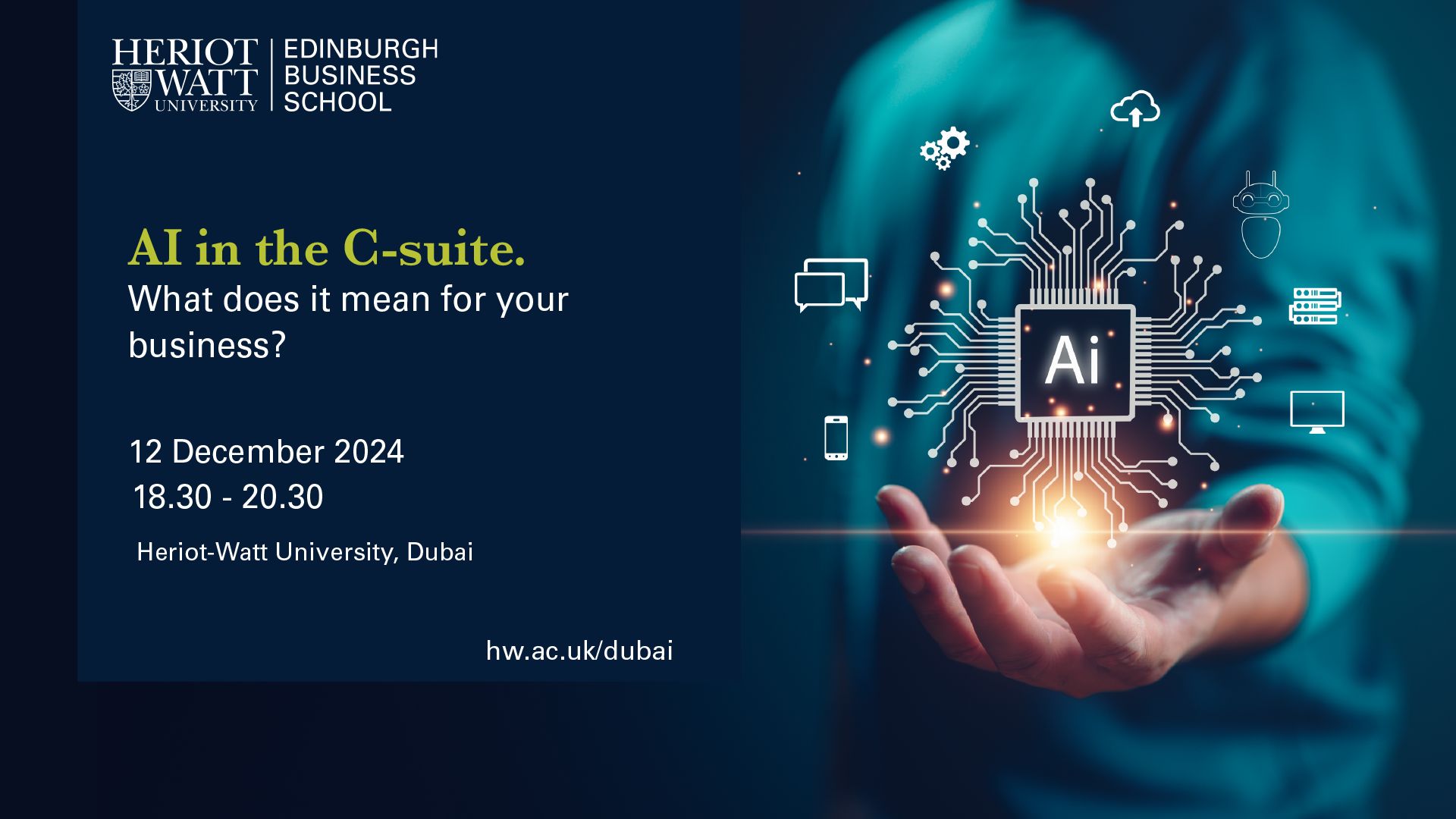Last week there was a lot of chatter in the news from Rich Miner post that “[he] create[d] Android to prevent Microsoft from controlling the phone the way they did the PC”.
As someone who worked on Windows Mobile/Phone at Microsoft, I’ve thought a lot about Bill Gates’ statement calling the company’s mobile misstep “the greatest mistake of all time.” Here’s my take on what happened, what it cost, and why it matters very much today:
👉 𝐖𝐢𝐧𝐝𝐨𝐰𝐬 𝐌𝐨𝐛𝐢𝐥𝐞’𝐬 𝐒𝐮𝐜𝐜𝐞𝐬𝐬 𝐚𝐧𝐝 𝐭𝐡𝐞 𝐒𝐡𝐢𝐟𝐭 𝐭𝐨 𝐖𝐢𝐧𝐝𝐨𝐰𝐬 𝐏𝐡𝐨𝐧𝐞
Before Android’s rise, Microsoft was thriving with Windows Mobile, partnering with major OEMs who later pivoted to Android, but iOS showed that the WM platform was antiquated without a pure touch experience.
But the transition to Windows Phone was abrupt, leaving OEMs and developers scrambling. This disruption rendered the existing ecosystem irrelevant and erased momentum we had built. Instead of evolving what we had achieved, we started over—and got stuck between iOS and Android with no remediation, i.e. denying reality!
👉 𝐖𝐡𝐚𝐭 𝐢𝐬 𝐭𝐡𝐞 $𝟒𝟎𝟎𝐁 𝐈𝐦𝐩𝐚𝐜𝐭
Bill Gates quantified the mobile mistake as costing $400 billion—a staggering number. But beyond the financial hit, this failure limited Microsoft’s consumer reach in a mobile-first world. Losing control of the mobile platform also hurt MSFT’s ability to distribute key services like Internet Explorer, Bing, and Cortana, all of which relied on owning the device, which therefore explains why this is far greater than the $7.6 billion write-off from the Nokia acquisition.
👉 𝐓𝐡𝐞 𝐏𝐥𝐚𝐭𝐟𝐨𝐫𝐦 𝐒𝐡𝐢𝐟𝐭 𝐋𝐞𝐬𝐬𝐨𝐧
This story highlights a critical truth about tech: platform shifts define winners and losers. Whether it’s mobile, cloud, or now AI, being a leader—not a latecomer—is essential. There’s rarely room for more than two broad players in any platform race, and in mobile, Microsoft found itself becoming an irrelevant 3rd.
👉 𝐋𝐞𝐬𝐬𝐨𝐧𝐬 𝐟𝐨𝐫 𝐭𝐡𝐞 𝐀𝐈 𝐏𝐥𝐚𝐭𝐟𝐨𝐫𝐦 𝐒𝐡𝐢𝐟𝐭
This is a lesson for every organization navigating the current AI revolution: seize the opportunity early, or risk irrelevance. Leaders in mobile and cloud are already doubling down on AI and MSFT has definitely learned its lesson. Will your company be ready?




